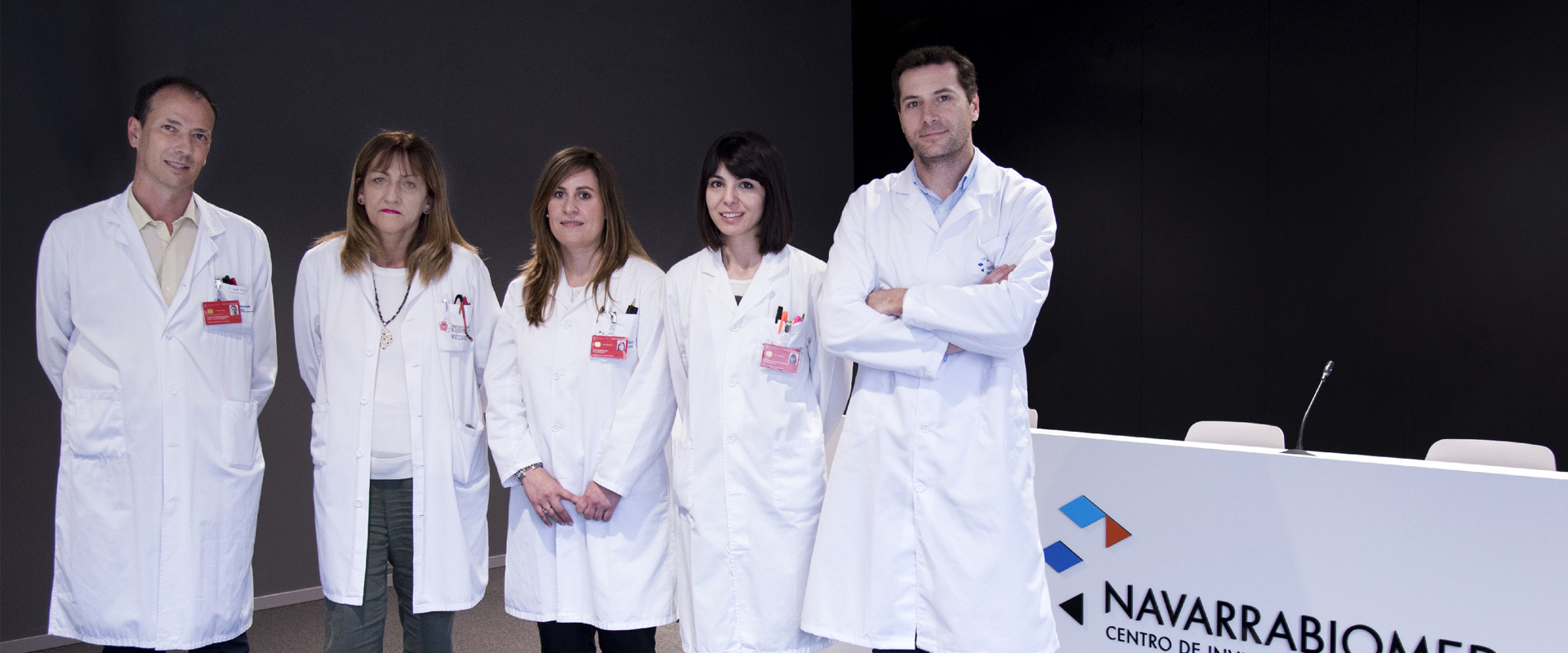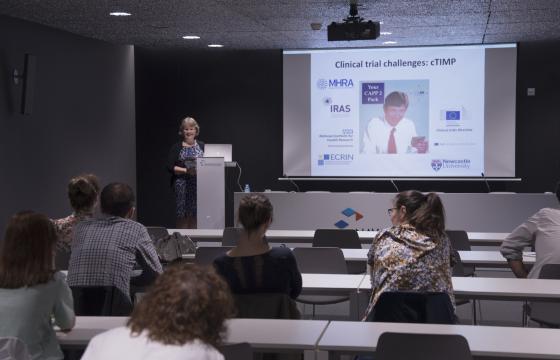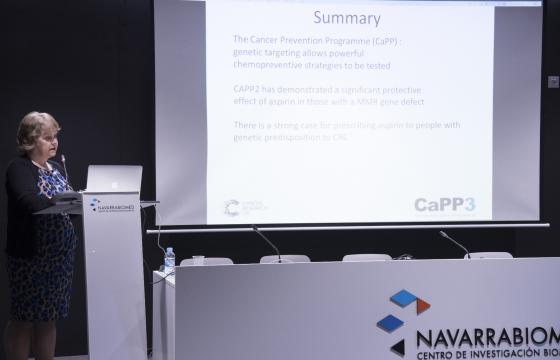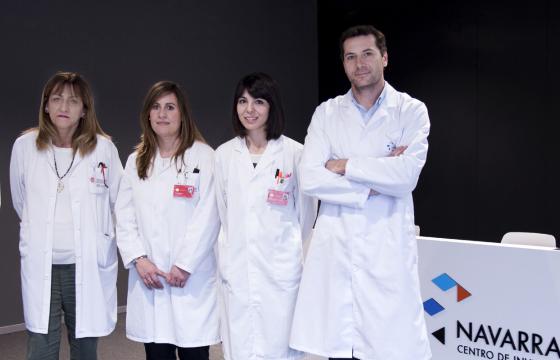
Navarrabiomed supports international clinical study in Spain to prevent cancer in patients with Lynch syndrome
- The study, CaPP3 Spain, will assess the effectiveness of the continuous intake of aspirin in patients with Lynch syndrome
Navarrabiomed – the joint biomedical research centre of the Government of Navarra and the Public University of Navarra (UPNA) – is promoting and coordinating the Cancer Prevention Project 3 (CaPP3) in Spain, a study that aims at finding the right dose of aspirin for people with a mismatch repair gene defect, the underlying cause of Lynch syndrome. Currently, the study is being carried out in the UK, Spain, Finland, Australia and Israel.
Patients with Lynch syndrome have a greater genetic risk of developing colorectal and other types of cancer, including uterine, gastric, liver and bile duct and urinary tract cancers. About half the individuals with the gene defect that leads to Lynch syndrome develop cancer, many of them at a younger age than the general population.
CaPP3 Spain will be conducted at the Navarra Hospital Complex (CHN) between 2018 and 2022, as part of a joint initiative by the Medical Genetics and the Digestive System Units for advancement in the knowledge and approach to Lynch syndrome.
CaPP3 Spain is led by Ángel Alonso and Ana Guerra, medical specialists from the Medical Genetics and Digestive System Units, respectively, and Navarrabiomed researchers. ‘Studies suggest that a daily dose of aspirin can reduce the risk of cancer in patients with Lynch syndrome. However, we still do not know what the minimum effective dose is, which is why we are conducting these clinical trials before administering the drug to our patients,’ Dr Alonso remarks.
‘So far, the only way of controlling the risk of cancer in this type of patients was clinical follow-up (endoscopy, gynaecological check-up, urological check-up). Unfortunately, this method does not prevent interval cancers. So being able to reduce the risk with a drug is a big breakthrough,’ Dr Guerra adds.
300 patients with Lynch syndrome in Navarra
Lynch syndrome is a genetic disorder whose prevalence is about 1-in-1000. Thanks to the intensive work done by research teams over the past 20 years in Navarra, 300 carriers of the disease have been identified in the region.
CaPP3 Spain is part of the Cancer Prevention Project 3 (CaPP3), which envisages the participation of 2000 recruits at the global level for the next eight years.
CaPP3 Spain is being coordinated at the Navarrabiomed Clinical Trial Platform, which makes all the resources and the infrastructure available, supervises patient recruitment and follow-up, and is in contact with CaPP3 international partners.
In the development of CaPP3 Spain, the team relied on Gillian Borthwick, CaPP3 Manager at the National Institute for Health Research (Newcastle, UK) for advice. Recently, Dr Borthwick conducted a seminar in Navarrabiomed.
Navarrabiomed and CHN are part of the Navarra Medical Research Institute (IdiSNA), an agency promoting excellence in biomedical research in Navarra.
Photo: Representatives of CHN and Navarrabiomed. From left to right: Ángel Alonso, Ana Guerra, Ruth García, Patricia García and Ferran Capdevila.




